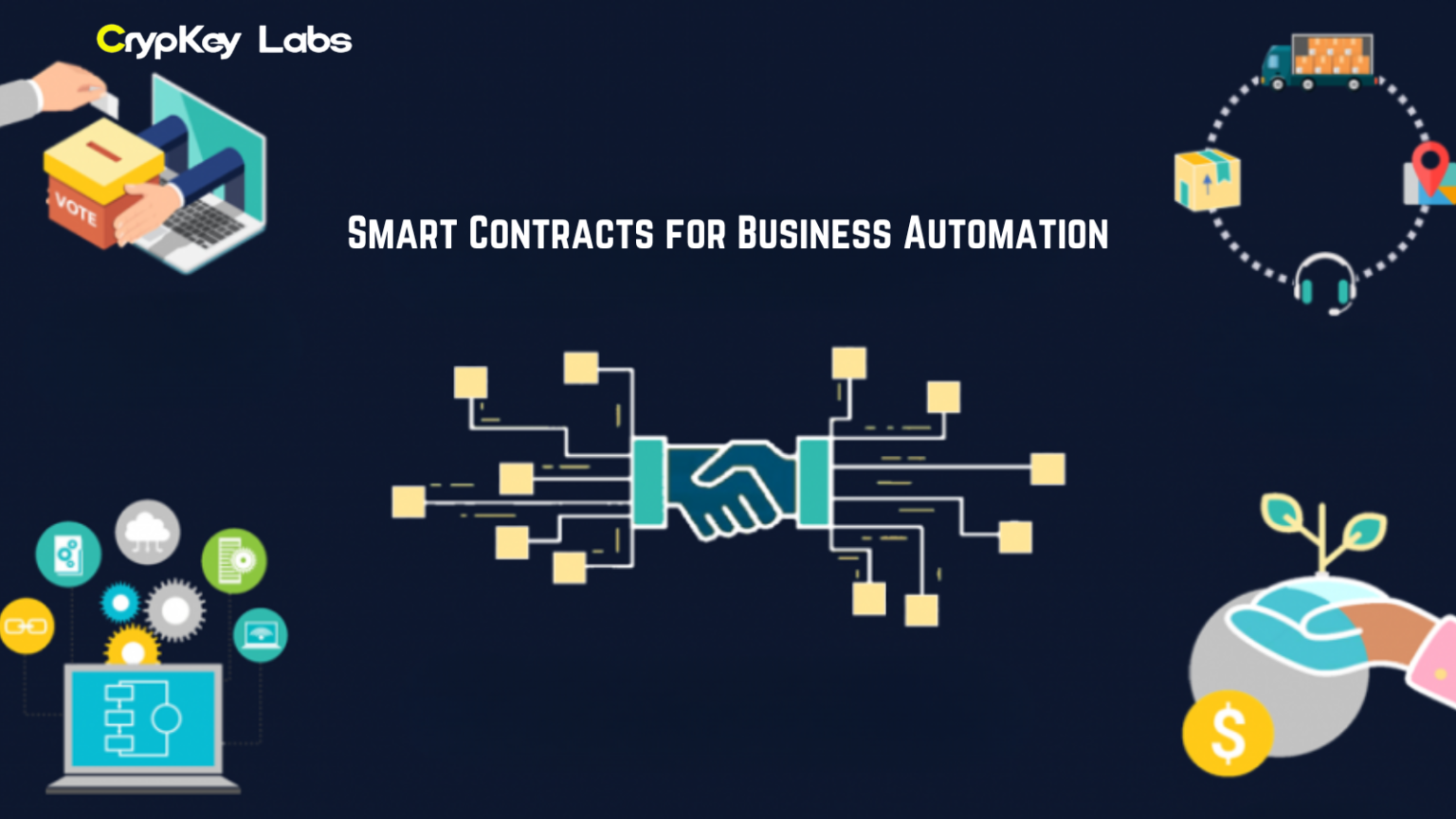In today’s fast-paced world, businesses are constantly looking for ways to streamline processes, reduce costs, and boost efficiency. That’s where smart contracts come in. These little pieces of magic, powered by blockchain technology, are changing the way businesses operate by automating tasks and eliminating the need for intermediaries. But what exactly are smart contracts, and how can they help your business? Let’s dive in.
What Are Smart Contracts?
Think of smart contracts as digital agreements that automatically execute themselves when certain conditions are met. Unlike traditional contracts, which rely on people or institutions to enforce terms, smart contracts live on the blockchain, ensuring they’re secure, tamper-proof, and self-executing.
Imagine this: You’re purchasing a car from someone. Instead of involving a middleman or a bank, a smart contract could handle the transaction. Once you pay the agreed amount, the car’s ownership is automatically transferred to you. Simple, right?
Key Characteristics of Smart Contracts:
- Self-Executing: They follow the “if-then” logic, executing actions only when predefined conditions are met.
- Decentralized: No central authority controls the process.
- Tamper-Proof: Once deployed, the code cannot be altered, ensuring security and trust.
Benefits of Using Smart Contracts in Business Automation
So, why should businesses consider smart contracts? The benefits are game-changing.
1. Efficiency
Smart contracts eliminate the need for manual intervention. No more waiting for someone to approve a payment or process a document. Everything happens automatically, saving time and effort.
2. Cost-Effectiveness
Say goodbye to intermediaries like lawyers, brokers, and banks. Smart contracts reduce administrative and transaction costs, letting you keep more money in your pocket.
3. Transparency
With smart contracts, everyone involved can see the terms and execution on the blockchain. There’s no room for misunderstandings or disputes.
4. Security
Smart contracts are encrypted and stored on a blockchain. Makes them nearly impossible to hack or alter. This ensures that your agreements are safe and reliable.
5. Speed
Traditional processes can be slow, when multiple parties are involved. Smart contracts execute instantly once conditions are met.
Applications of Smart Contracts in Business
Smart contracts aren’t just a buzzword; they have real-world applications across various industries. Here are some ways businesses are using them:
1. Supply Chain Management
Smart contracts can automate order tracking and payments. For example, a contract could release payment to a supplier as soon as goods are delivered and verified.
2. Finance and Payments
They streamline invoicing, loans, and escrow services. Imagine getting paid the moment your service is delivered
3. Real Estate
Handling property transactions and rental agreements becomes hassle-free. Smart contracts can transfer property ownership and release funds automatically.
4. Healthcare
From managing patient records to automating insurance claims, smart contracts bring efficiency and security to healthcare processes.
5. Insurance
Claims processing can be a nightmare, but not with smart contracts. They automatically verify conditions and release payouts, making the process quicker and more transparent.
6. Human Resources
Managing payroll and employment contracts is easier with smart contracts. Payments are made automatically based on work completed or milestones achieved.
Challenges and Limitations of Smart Contracts
While smart contracts are revolutionary, they’re not without challenges. Here are some hurdles to consider:
1. Legal Recognition
Smart contracts operate on code, not traditional legal language. This can lead to issues with enforcement in regions that don’t recognize them as valid contracts.
2. Coding Errors
A single bug in the code can have catastrophic consequences. Since smart contracts are immutable, fixing errors can be complex and costly.
3. Scalability
Some blockchains, like Ethereum, can experience high transaction fees and slow processing times during peak usage.
4. Oracles and Data Dependence
Smart contracts often rely on external data sources, known as oracles, to execute. If the data is incorrect or tampered with, the contract might not function as intended.
Smart Contract Platforms
If you’re considering using smart contracts, choosing the right platform is crucial. Here are some of the most popular options:
1. Ethereum
Ethereum is the pioneer of smart contracts. It’s widely used and has a robust developer community, but high gas fees can be a drawback.
2. Binance Smart Chain (BSC)
BSC is faster and more cost-effective than Ethereum, making it a popular choice for businesses on a budget.
3. Solana
Known for its high scalability and low fees, Solana is ideal for businesses with a high volume of transactions.
4. Hyperledger
Focused on enterprise applications, Hyperledger is great for businesses looking for private and permissioned blockchain solutions.
The Future of Smart Contracts in Business
The potential of smart contracts is enormous, especially when combined with other emerging technologies like IoT, AI, and Big Data.
Trends to Watch:
- Integration with IoT: Smart contracts could automate processes like reordering inventory when stock levels drop.
- AI-Powered Contracts: Using AI to analyze data and create smarter, more dynamic contracts.
- Industry Adoption: From finance to real estate, more industries are exploring smart contract solutions.
The dream? A fully automated, decentralized business ecosystem where everything runs smoothly without human intervention.
How to Get Started with Smart Contracts for Your Business
Ready to take the plunge?
1. Evaluate Your Needs
Determine if smart contracts align with your business goals. Not all processes need blockchain automation.
2. Choose the Right Platform
Research platforms like Ethereum, BSC, Solana, or Hyperledger to find the one that suits your needs and budget.
3. Find a Development Team
Unless you’re a coding wizard, you’ll need experts to write and deploy your smart contracts. Make sure to hire a team with experience and a good track record.
4. Test and Audit
Before deploying your contract, test it thoroughly and have it audited for security vulnerabilities.
Conclusion
Smart contracts are revolutionizing the way businesses operate. By automating processes, reducing costs, and enhancing transparency, they offer a glimpse into a future where everything is faster, safer, and more efficient. While there are challenges to consider, the benefits far outweigh the risks. Now’s the time to explore how smart contracts can transform your business.







